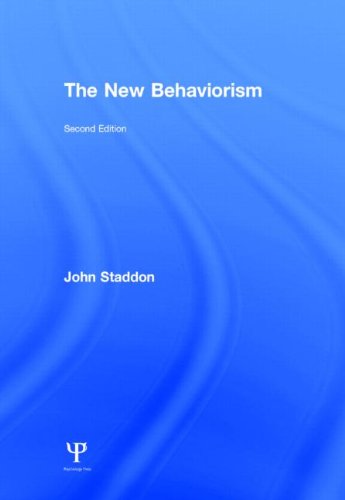

Most ebook files are in PDF format, so you can easily read them using various software such as Foxit Reader or directly on the Google Chrome browser.
Some ebook files are released by publishers in other formats such as .awz, .mobi, .epub, .fb2, etc. You may need to install specific software to read these formats on mobile/PC, such as Calibre.
Please read the tutorial at this link: https://ebookbell.com/faq
We offer FREE conversion to the popular formats you request; however, this may take some time. Therefore, right after payment, please email us, and we will try to provide the service as quickly as possible.
For some exceptional file formats or broken links (if any), please refrain from opening any disputes. Instead, email us first, and we will try to assist within a maximum of 6 hours.
EbookBell Team

4.0
86 reviewsThis groundbreaking book presents a brief history of behaviorism, the dominant movement in American psychology in the first half of the 20th Century. It then analyzes and criticizes radical behaviorism, as pioneered by B.F. Skinner, and its philosophy and applications to social issues.
This second edition is a completely rewritten and much expanded version of the first edition, published nearly 15 years earlier. It surveys what changes have occurred within behaviorism and whether it has maintained its influence on experimental cognitive psychology or other fields.
The mission of the book is to help steer experimental psychology away from its current undisciplined indulgence in "mental life" toward the core of science, which is an economical description of nature. The author argues that parsimony -- the elementary philosophical distinction between private and public events, even biology, evolution and animal psychology -- all are ignored by much contemporary cognitive psychology. The failings of radical behaviorism as well as a philosophically defective cognitive psychology point to the need for a new theoretical behaviorism, which can deal with problems such as "consciousness" that have been either ignored, evaded or muddled by existing approaches.
This new behaviorism provides a unified framework for the science of behavior that can be applied both to the laboratory and to broader practical issues such as law and punishment, the health-care system, and teaching.